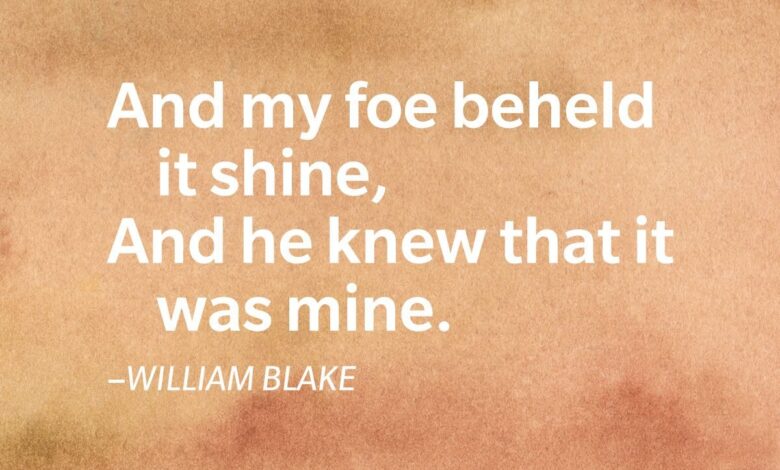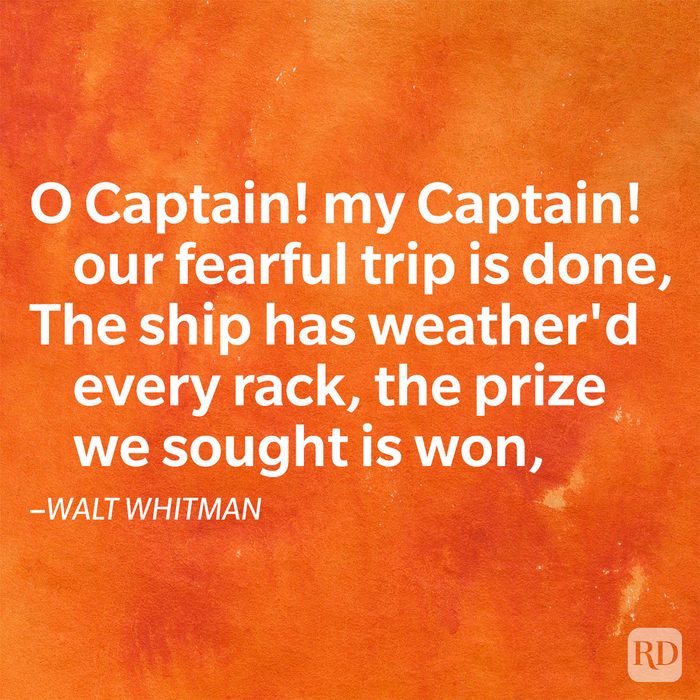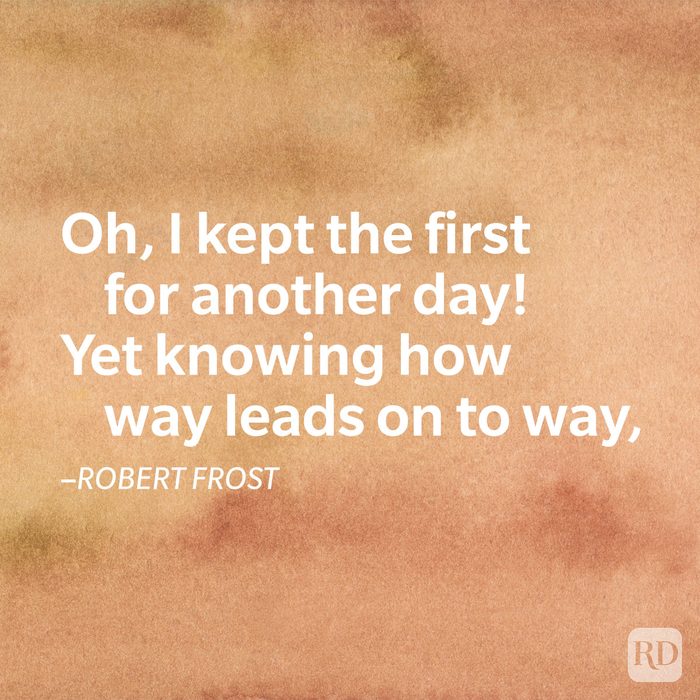20 Famous Poems That Everyone Should Read at Least Once

3. “She Walks in Beauty” by Lord Byron
She walks in beauty, like the night
Of cloudless climes and starry skies;
And all that’s best of dark and bright
Meet in her aspect and her eyes;
Thus mellowed to that tender light
Which heaven to gaudy day denies.
One shade the more, one ray the less,
Had half impaired the nameless grace
Which waves in every raven tress,
Or softly lightens o’er her face;
Where thoughts serenely sweet express,
How pure, how dear their dwelling-place.
And on that cheek, and o’er that brow,
So soft, so calm, yet eloquent,
The smiles that win, the tints that glow,
But tell of days in goodness spent,
A mind at peace with all below,
A heart whose love is innocent!
An icon of his time, Lord Byron (aka George Gordon) is one of the best-known English poets of the early 19th-century Romantic Movement. He’s just as famous for his countless affairs with men and women as he is for his famous poems. It’s no surprise, then, that the poet not only inspired the Byronic hero character in fiction but also wrote some of the most romantic lines in poetry. If you’re hunting for the perfect love poem for a woman, look no further than Byron’s most famous lines. “She Walks in Beauty” praises a woman’s inner and outer beauty, complementing physical attributes as well as inner innocence and purity.

4. “O Captain! My Captain!” by Walt Whitman
O Captain! my Captain! our fearful trip is done,
The ship has weather’d every rack, the prize we sought is won,
The port is near, the bells I hear, the people all exulting,
While follow eyes the steady keel, the vessel grim and daring;
But O heart! heart! heart!
O the bleeding drops of red,
Where on the deck my Captain lies,
Fallen cold and dead.
O Captain! my Captain! rise up and hear the bells;
Rise up—for you the flag is flung—for you the bugle trills,
For you bouquets and ribbon’d wreaths—for you the shores a-crowding,
For you they call, the swaying mass, their eager faces turning;
Here Captain! dear father!
This arm beneath your head!
It is some dream that on the deck,
You’ve fallen cold and dead.
My Captain does not answer, his lips are pale and still,
My father does not feel my arm, he has no pulse nor will,
The ship is anchor’d safe and sound, its voyage closed and done,
From fearful trip the victor ship comes in with object won;
Exult O shores, and ring O bells!
But I with mournful tread,
Walk the deck my Captain lies,
Fallen cold and dead.
This poem will be instantly recognizable to fans of the 1989 film Dead Poets Society—in fact, “O Captain! my Captain!” is one of the most memorable quotes from the movie. But even without its mention in the film, Walt Whitman’s poem deserves a spot on our list of the most famous poems ever written. Penned in 1865 as a tribute to Abraham Lincoln, who was assassinated that year, “O Captain! My Captain!” is an ode to bravery and untimely death. And it continues to inspire readers centuries later.

5. “The Road Not Taken” by Robert Frost
Two roads diverged in a yellow wood,
And sorry I could not travel both
And be one traveler, long I stood
And looked down one as far as I could
To where it bent in the undergrowth;
Then took the other, as just as fair,
And having perhaps the better claim,
Because it was grassy and wanted wear;
Though as for that the passing there
Had worn them really about the same,
And both that morning equally lay
In leaves no step had trodden black.
Oh, I kept the first for another day!
Yet knowing how way leads on to way,
I doubted if I should ever come back.
I shall be telling this with a sigh
Somewhere ages and ages hence:
Two roads diverged in a wood, and I—
I took the one less traveled by,
And that has made all the difference.
On the surface, Robert Frost’s “The Road Not Taken” is a beautiful account of the poet’s walk in the woods. But dig deeper, and you’ll find a lesson wrapped up in Frost’s metaphor of a fork in the road. This inspirational poem teaches about the importance of singularity and distinct personality. Instead of following the path countless others have taken, forge ahead on the road fewer have trod. It will, as the poet writes, make “all the difference” in life.
Source link

